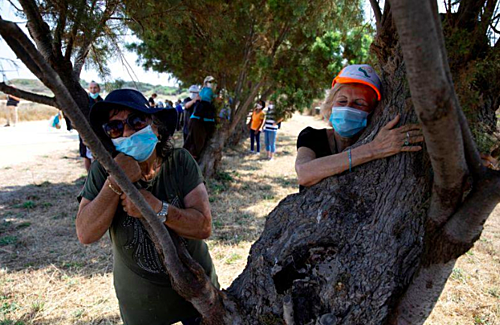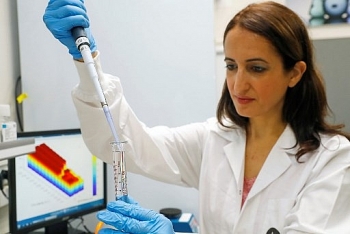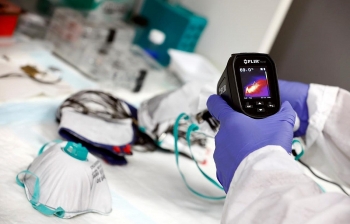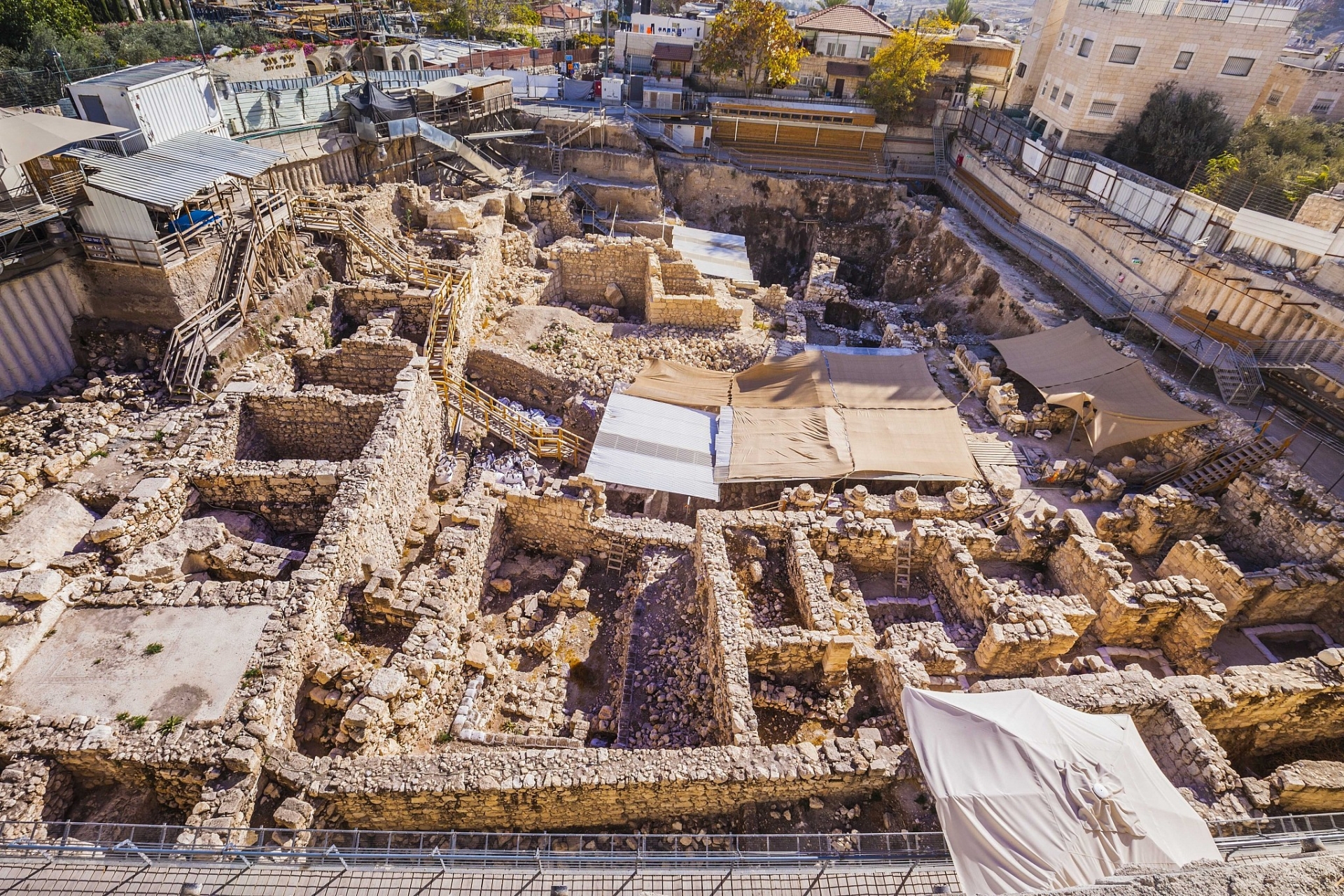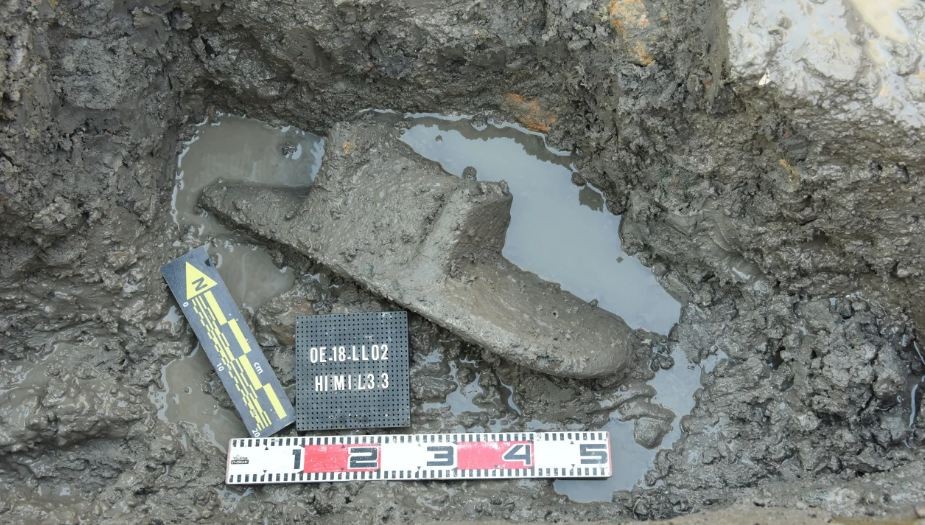Israel reveals 2,500-year-old seal, stamp impression
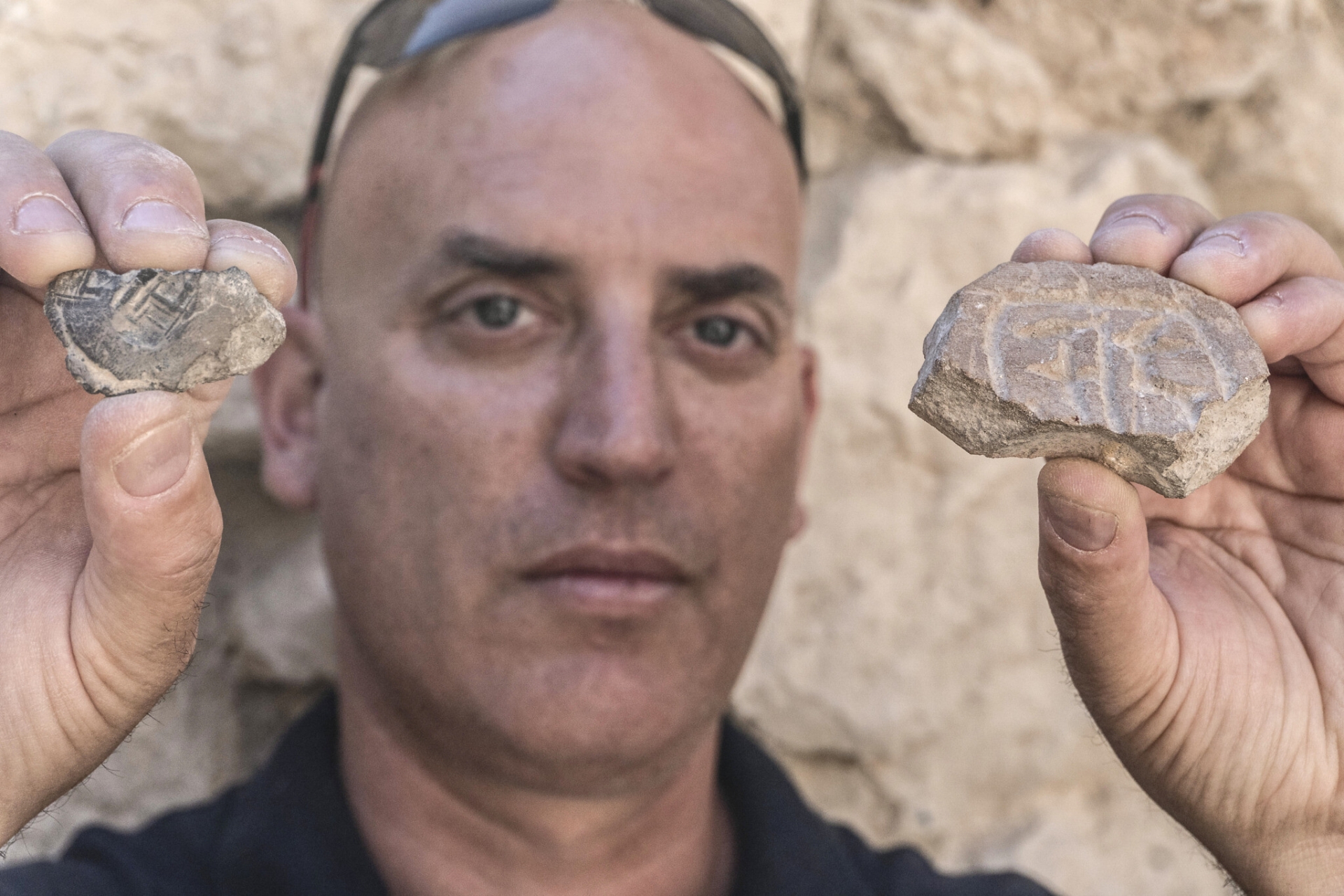 |
| Israel Antiquities Authority’s Dr. Yiftah Shalev with the Persian-era seal and seal impression discovered in the City of David’s Givati Parking Lot excavations. Photo: Shai Halevy/IAA |
The findings were discovered by the IAA and Tel Aviv University next to the rubble of a large structure that was destroyed during the Babylonian destruction of the city.
According to Xinhua News, the double seal impression was discovered on a large piece of a 4.5-centimeter-long clay, indicating that it was used to seal a large container, perhaps a jar, and not a document.
The imprint bears a Babylonian-style image of a person, probably a king, sitting on a large chair with two columns in front of him, representing the gods Nabu and Marduk.
The seal is made of a large, locally made pottery shard, with a circular frame engraved on its outer side, and is divided into two sections containing several linear inscriptions, probably representing two characters.
On the other side of the seal is a fragment, which may be indicative of a handle that was attached to it in the past. The size of the seal, about 8-centimeter in diameter, indicates that it was used to seal large objects.
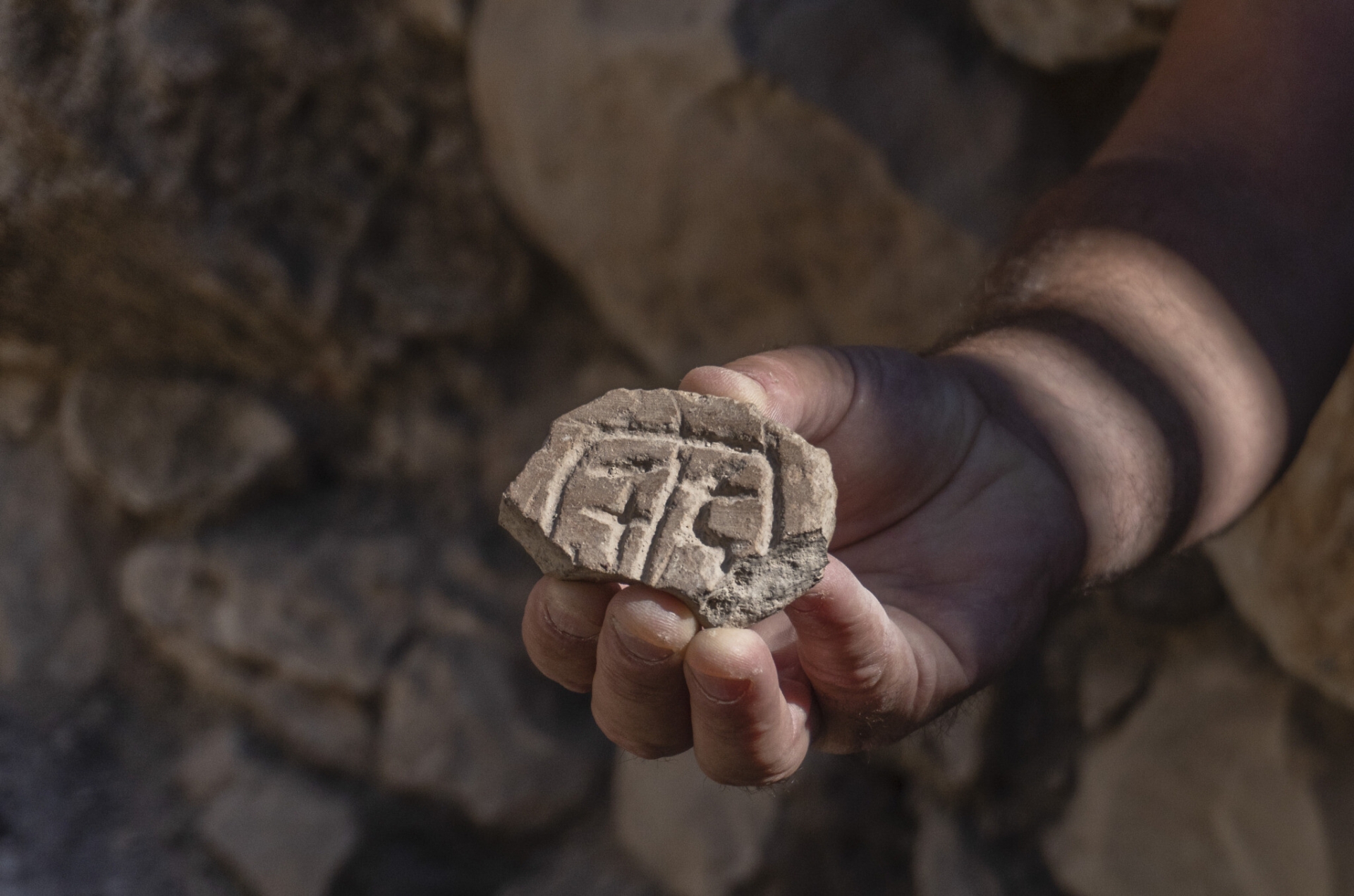 |
| Seal made out of a piece of clay from the Persian Period discovered in the City of David Givati Parking Lot excavations. Photo: Shai Halevy/IAA |
“The finding of the stamp and seal impression in the City of David indicates that despite the city’s dire situation after the [Babylonian] destruction, efforts were made to restore the administrative authorities to normal, and its residents continued to partly use the structures that were destroyed”, cited Times of Jerusalem with the archaeologists' comments.
According to the researchers, the artifacts most likely date back to the Persian period, about 2,500 years ago, and offer groundbreaking archaeological evidence that even after the terrible destruction it underwent in 586 BCE at the hands of the Babylonians, Jerusalem maintained the rank of an important administrative center.
“We discovered the objects a few months ago in a palace that was probably built around the end of the 8th century,” TAU Prof. Yuval Gadot told The Jerusalem Post. “While we cannot be sure about when the structure was first erected, we do know that it was destroyed in 586 and then rebuilt and reused.”
Other artifacts were discovered along with the two items, including a broken pottery vessel decorated with a face of the Egyptian god Bes
“The Persian period is a black hole in archaeology,” Israel Antiquities Authority’s Dr. Yiftah Shalev told The Times of Israel on Tuesday. “Every time we find something, it’s like lighting a new candle — it gives a new light”.
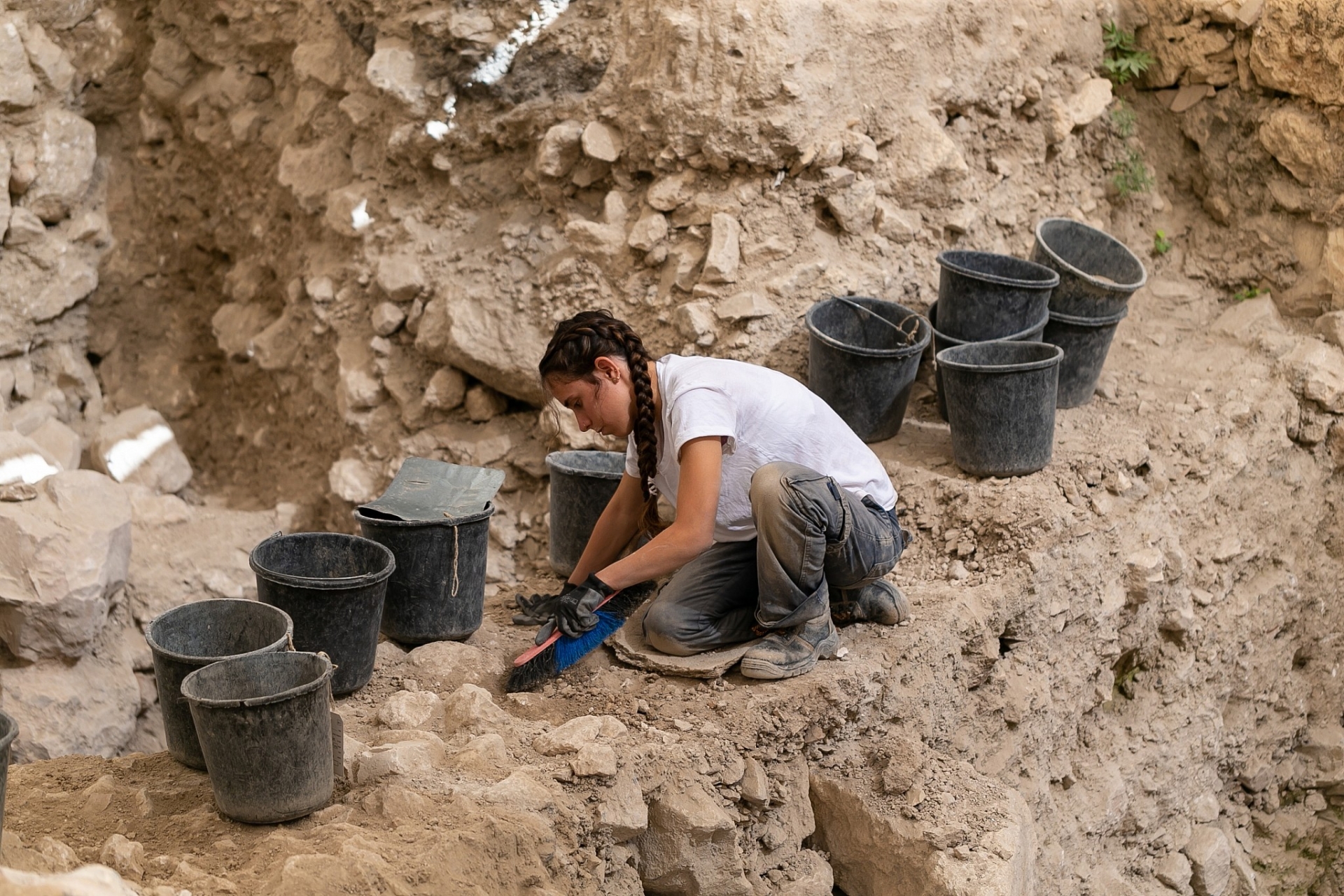 |
| The archaeological excavations in the Givati Parking Lot in the City of David. Photo: Eliyahu Yannai/City of David |
| According to biblical history, the Babylonian conquest of Judah in the late 7th century led to three waves of exilic deportations from the Holy Land. By 586 BCE, Jerusalem, now part of the Babylonian province of Yehud, was pillaged, the First Temple destroyed and much of the land’s citizenry and ruling and priestly classes deported. Eventually, the Persians conquered the Babylonians in 539 BCE, immediately after which King Cyrus the Great declared that the Jews may return to their homeland.
|
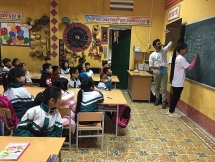 | Over 20 Israeli volunteers renovate schools, teach English to Sa Pa’s children Twenty two ex-Israel Defense Forces (IDF) volunteers from the Heroes for Life NGO are providing English lessons, renovation for three school in Lao Cai province’s ... |
 | Israeli firms launch diabetes management pilot in Vietnam To address that problem, Israeli digital diabetes platform provider GlucoMe of Yarkona has begun a pilot collaboration with Merck KGaA of Germany to evaluate ... |
 | Youths inspired by Israeli farming hold free green tours to farms outside Saigon The cost of the tours covers transport and lunch |
Recommended
 Handbook
Handbook
Vietnam Moves Up 8 Places In World Happiness Index
 Handbook
Handbook
Travelling Vietnam Through French Artist's Children Book
 Multimedia
Multimedia
Vietnamese Turmeric Fish among Best Asian Dishes: TasteAtlas
 Handbook
Handbook
From Lost to Found: German Tourist Thanks Vietnamese Police for Returning His Bag
Popular article
 Handbook
Handbook
Prediction and Resolution for the Disasters of Humanity
 Handbook
Handbook
16 French Films To Be Shown For Free During Tet Holiday In Vietnam
 Handbook
Handbook
Unique Cultural and Religious Activities to Welcome Year of the Snake
 Handbook
Handbook

